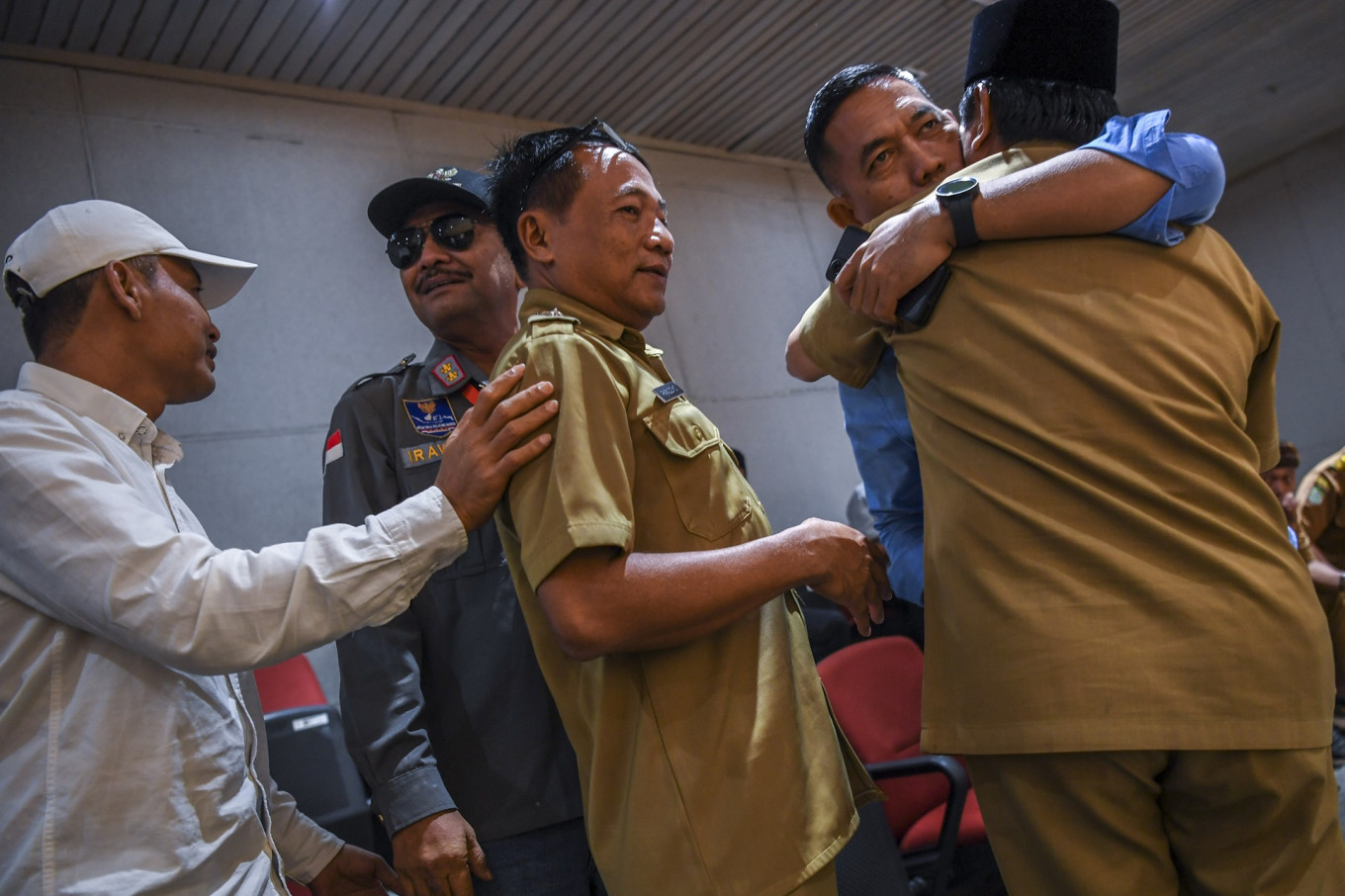Village law revision raises 'political transaction' red flag
thejakartapost.com - 1 April 2024

Critics have slammed newly passed legislation that extends the tenure of village heads, saying the law could lead to poorer village governance and that its passage was loaded with political interests.
The House of Representatives unanimously passed the revisions to the 2014 Village Law during a plenary session last week, with the support of the administration of outgoing President Joko “Jokowi” Widodo.
The law, which was endorsed as a House initiative in July of last year and will come into immediate effect, seeks to bring sweeping changes to how villages are governed. The changes include an eight-year term of office for village heads, up from the previous six but below the nine years that the House had initially proposed.
However, village heads, who number over 80,000 nationwide, can now only serve a total of two of those eight-year terms, rather than the previous set of three six-year terms, lowering their total possible tenure from 18 years to 16.
The House has said that the eight-year term will give village heads more time to resolve local tensions and implement their policies, as elections for village head could sometimes get quite heated.
But Regional Autonomy Watch (KPPOD) researcher Herman Suparman disagreed, saying that easing post-election tensions did not warrant the longer term as it was a problem faced at all levels of government.
“Giving the longer term will not have any positive impact on the quality of governance in villages. In fact, it will be counterproductive because it allows power to be concentrated for a longer period of time in just one person, making them ‘little kings’,” he said on Sunday.
Rather than the longer tenure, Herman said the revisions to the 2014 Village Law should have focused on improving the quality of village head elections, which Herman said were notorious for their susceptibility to fraud, voter intimidation and vote buying.
He also said the revision should have introduced better checks on village heads’ planning, budgets and policy execution, specifically through the Village Consultative Body (BPD).
“Right now, the BPD can only provide recommendations. It doesn’t have the authority to scrutinize [how a village head governs] as the Regional Representatives Council [DPRD] does,” Herman said.
Herman and several other experts suspected that policymakers were seeking the favor of village heads for the February general election, particularly because they had moved quickly to begin deliberating the bill before the election.
The House Legislation Body (Baleg) and the Home Ministry approved the revisions in the first stage of deliberations in early February, about a week before the general election. The House then passed the bill into law in a final deliberation on March 28, just two weeks after the election.
“The village law revision’s passage is a political transaction. Lawmakers are trying to ‘give something back’ to village heads,” Herman said, adding that he also suspected that lawmakers were trying to ensure the favor of village heads for the regional elections in November.
The presidential election in particular was marred by allegations of partisanship among village heads benefitting then-presidential candidate Prabowo Subianto.
A village head group called Desa Bersatu (Villages United) held a gathering just days before the start of the campaign season in November of last year.
The gathering was widely seen as an attempt to marshal support for Prabowo, particularly as his running mate Gibran Rakabuming Raka was also in attendance.
Sources: https://www.thejakartapost.com/indonesia/2024/03/31/village-law-revision-raises-political-transaction-red-flag.html.
Dibaca 683 kali
